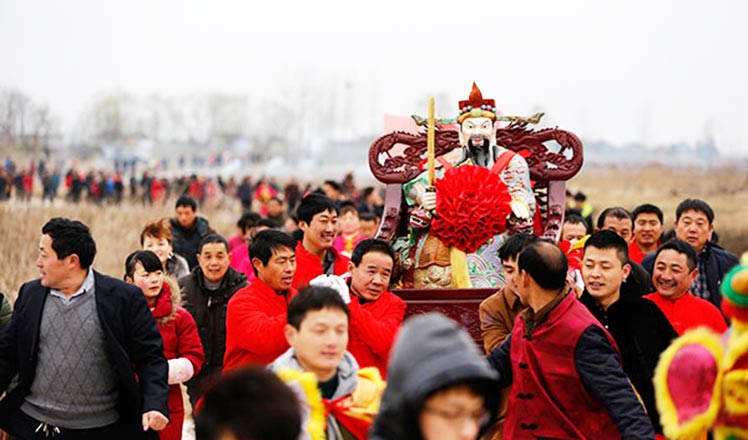Neighbors share the will to be brotherly friends
Updated: 2016-04-06 07:43
(China Daily)
|
||||||||
 |
|
Foreign Minister Wang Yi greets Aung San Suu Kyi, Myanmar’s new foreign minister and leader of the National League for Democracy party, in Naypyitaw, Myanmar, on Tuesday. [Photo/Agencies] |
With China's top diplomat, Wang Yi, in Myanmar on an official visit at the invitation of Aung San Suu Kyi in her new role as Myanmar's foreign minister, the guesswork over who would top her to-be-invited list has been put to rest.
Given the new, emerging political landscapes inside Myanmar and on China's periphery, this may be nutritious fodder for geopolitical interpretations and imaginings.
But the diplomatic rationalism at work is a reassuring sign that Beijing and post-election Naypyitaw will not get lost in redefining their ties as some had anticipated.
Sharing a border of 2,200 kilometers, China and Myanmar are close neighbors not merely in a geographical sense. Since the 1960s, a special rapport known as the "Pauk-Phaw" friendship, or brotherly feelings, has by and large defined bilateral ties.
However, there have been less-than-pleasant episodes in recent years, prompting speculation that the "Pauk-Phaw" rhetoric was starting to ring hollow. There have even been claims that Naypyitaw is drifting away from, if not turning against, Beijing in a new round of geopolitical wrangling.
But Beijing did not buy that. In congratulatory messages to their newly elected counterparts in Myanmar, both Chinese President Xi Jinping and Wang Yi reiterated a commitment to the "Pauk-Phaw" closeness. Responding to media inquiries regarding bilateral ties in March, Wang said the troubles were just "growing pains" in the ties between neighbors.
Nor did Naypyitaw. Suu Kyi said in a recent interview that it is more important to deal with a neighbor than getting along with countries far away. Hosting China's top diplomat as her first official guest testifies to that.
That is logical considering there is a new, closer economic bond at stake. China is Myanmar's No 1 source of overseas investments as well as its largest trading partner, with Chinese capital accounting for one-third of all foreign investments, and trade with China one-third of Myanmar's overall foreign trade.
So the Chinese and Myanmar foreign ministers have a lot of real business to attend to.
But Suu Kyi was correct in stating earlier that as long as there is the willingness to befriend, there is no reason the two countries cannot be friends. The ongoing visit shows Beijing and Naypyitaw share that willingness.
The cool-headedness they have displayed so far justifies confidence that bilateral ties will not get stuck in calculations of immediate gains or losses.
With that, and mutual respect, as Suu Kyi suggested, there is no problem that cannot be overcome.
- Xi: Talks 'only correct way' for China, ROK
- Xi to Obama: Disputes should be managed
- Cypriot court remands in custody man suspected of hijacking EgyptAir flight
- Govt eyes luxury tourists amid concerns over safety
- Sleep tight and don't let sharks bite at Paris aquarium
- Aung San Suu Kyi appointed as Myanmar's new foreign minister

 Microsoft embraces artificial intelligence
Microsoft embraces artificial intelligence
 Yao Ming introduced to Hall of Fame
Yao Ming introduced to Hall of Fame
 The world in photos: March 28 - April 3
The world in photos: March 28 - April 3
 Discover beautiful China in spring blossom (V)
Discover beautiful China in spring blossom (V)
 'Pit yards' to open to visitors
'Pit yards' to open to visitors
 Ancestral temples continue to bring family members together
Ancestral temples continue to bring family members together
 Culture Insider: 8 things you may not know about Clear and Bright
Culture Insider: 8 things you may not know about Clear and Bright
 Discover beautiful China in spring blossom (IV)
Discover beautiful China in spring blossom (IV)
Most Viewed
Editor's Picks

|

|

|

|

|

|
Today's Top News
Marriott unlikely to top Anbang offer for Starwood: Observers
Chinese biopharma debuts on Nasdaq
What ends Jeb Bush's White House hopes
Investigation for Nicolas's campaign
Will US-ASEAN meeting be good for region?
Accentuate the positive in Sino-US relations
Dangerous games on peninsula will have no winner
National Art Museum showing 400 puppets in new exhibition
US Weekly

|

|








